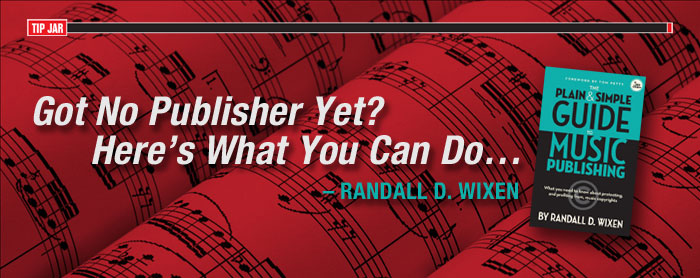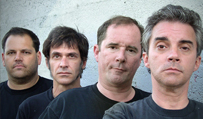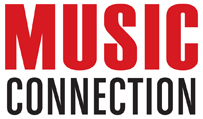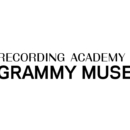The last few years have been really tough for songwriters and publishers. Plummeting record sales have decimated what was once a major source of income, and streaming and other music delivery models have not yet been monetized appropriately so that creators can be compensated fairly. Music is “consumed” more than ever, and yet the rewards accorded to its creators are hugely diminishing.
As this has been happening, there is also a contraction in the number of companies competing to sign writers and which are available to provide the basic back-room administration services which are needed. The cost of handling administration and collecting your money hasn’t dropped, yet the income you may be projected to earn has. Until you reach a certain level of success, getting someone interested in helping you to promote your songs and to handle the mundane administrative tasks that need to be done to protect your work is harder than ever. Bluntly, companies don’t want to work with writers who aren’t yet raking in the dough, or who don’t have three co-writes on the next BIG NAME HERE album.
Here then, are some of the basic things to do until you can find the appropriate business partner to help develop, exploit and monetize your work.
1. Copyright your songs. This isn’t that hard to do. Go to http://copyright.gov and then click on “Register A Copyright.” This takes you to the eCO registration system. There are tips, FAQs and tutorials. You can pay for the copyright with the Pay.gov system using a credit or debit card, or ACH transfer. The fee per registration, depending upon factors such as number of authors and claimants ranges from $35 to $55. In some cases, more than one work may be claimed on a single registration.
2. Join a performing rights organization (PRO). This is how you get paid when your songs get publicly performed on the radio, Internet or TV. The big two are ASCAP and BMI, which are both non-profit organizations operating under government supervision (consent decrees). Two smaller choices are SESAC and GMR, which are both for-profit organizations. ASCAP is the only organization governed by a board of writers and publishers elected by its members. Before you choose one ask around and get some advice from other writers.
You will need to join the organization both as a writer member and as a publisher member. This has to do with a very old convention where the writer most typically did not own his or her own song. The traditional payout is half to the writer and half to the publisher. So if you earn $100 for radio airplay, you will get $50 paid to Jane Smith, and another $50 payable to your own publishing company, Jane Smith Songs.
Once you join the PRO, you will have to clear (or register) all of your songs. By providing information about each song title, including the writer(s), the publisher(s) and each party’s shares, you accomplish two things. First, you create a pathway to get paid if your songs get publicly performed. Second, since the registration information is available online to the public, it makes it possible for potential users of your songs to quickly find you. Registering your songs with your chosen PRO online is easy.
3. Educate yourself. Buy a good book on music publishing, or take a course at a local college. Invest time and money in yourself. You’re a lot harder to take advantage of if you know what you’re doing, or what you should be charging for a license, or what really is “standard” and what isn’t. You will also be more ready for the next steps, such as issuing mechanical licenses (for when and if people actually buy records or downloads of your songs) and things such as handling foreign collections when your work has become popular enough to become available in other countries
4. Get involved. If you live in a town with a major music business presence, join the local organizations that are involved with songwriting and music publishing issues, such as NARAS (the National Academy of Recording Arts and Sciences), the folks behind the Grammys, the NMPA (the National Music Publishers Association), the AIMP (Association of Independent Music Publishers) and the CCC (California Copyright Conference). The last two groups put on educational lunches and dinners for a modest fee. Often, the lawyer sitting next to you at one of these seminars is getting “continuing legal education” credit so that he can learn about something that he can use in his music practice. ASCAP sponsors an annual “I Create Music” Expo replete with speakers and information that not only provide practical business information, but also provide opportunities for creative hook-ups and feedback.
5. Get an interim structure in place. Until you’re hot enough to attract real attention, affiliate with the HFA (Harry Fox Agency) for basic collection functions such as mechanical licenses and royalty collection. HFA was formed in 1927 by the NMPA, although they are now separate organizations. They also have reciprocal representation agreements in place with more than 30 foreign collecting societies, so they can provide a basic safety-net for overseas mechanical income. HFA are also able to help you collect monetized YouTube videos that use your music if you “opt in” to that service
6. Build awareness. Make videos of your songs and post them on Youtube, etc. Send review copies to Music Connection.com and other similar publications and bloggers that publicly review new music. Subscribe to a tip sheet (New On The Charts or Music Row’s Row Fax) to learn who is looking for songs and who is open to new artists. Play lots of gigs. Make a professional looking website so that people can find you and hear your music.
Make friends with other musicians further along in their careers. Maybe they’ll bring you in on a project or recommend you to a producer or a label. Or collaborate with you.
Record companies don’t really scour the clubs anymore looking for hot new talent to shower record deals and big advances on. So it is crucial to build a grassroots following starting with your friends (assuming they like you) and then your friends’ friends, and so on.
It’s a tough world out there, with lots of competition for attention, and not just from within the music world. You’re competing with video games, film, TV, the Internet, sports, concerts and devices for attention and dollars. It isn’t getting any easier for talent to break though. But develop a thick skin, keep on pushing and take some of these basic steps to learn more about the business and to protect the value of your work.












